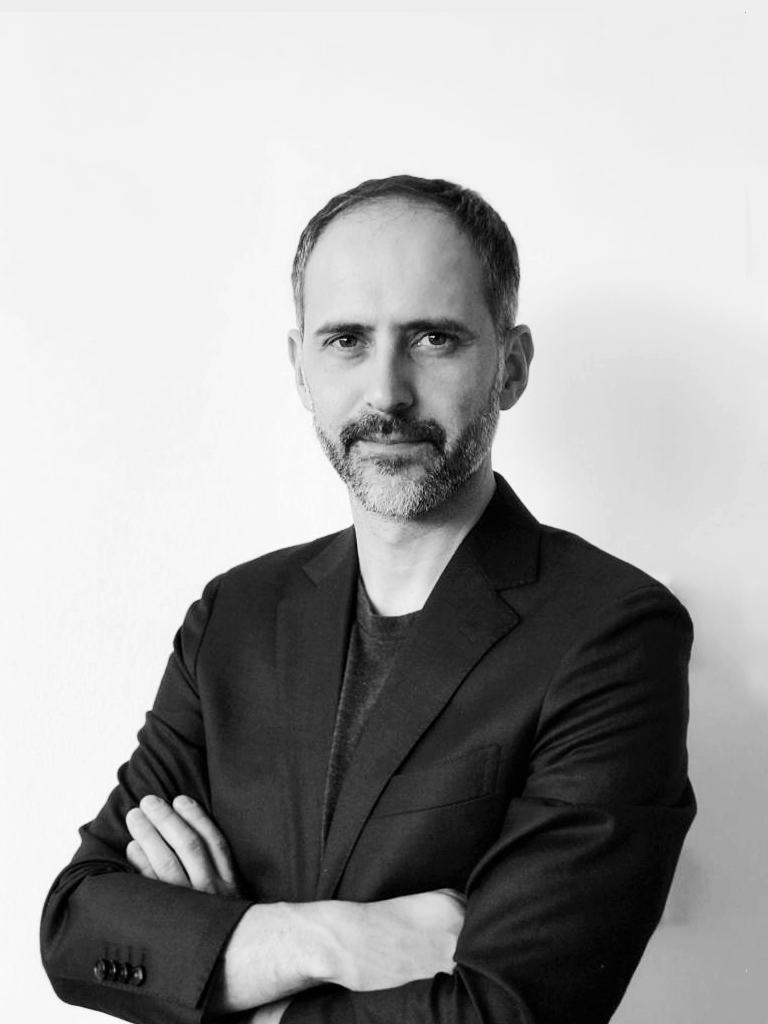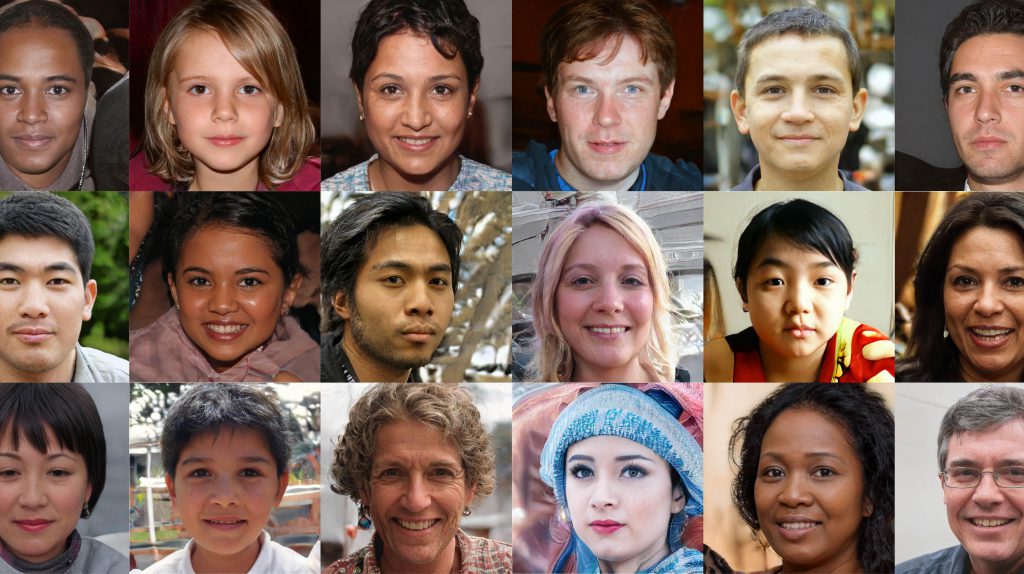Edu ist unser Technik-Guru mit multidisziplinären Kompetenzen und Leiter der Digitalisierung von foraus und unseren Partner-Think-Tanks. Seine Erfahrungen reichen von der Entwicklung von Videospielen über die Bereitstellung technischen Supports bei statistischen Daten für Mitgliedsstaaten der Vereinten Nationen bis zur Unterstützung zivilgesellschaftlicher Organisationen bei neuen Technologien in Ländern wie Guinea-Bissau oder Kambodscha.
Publications by Eduardo Belinchon
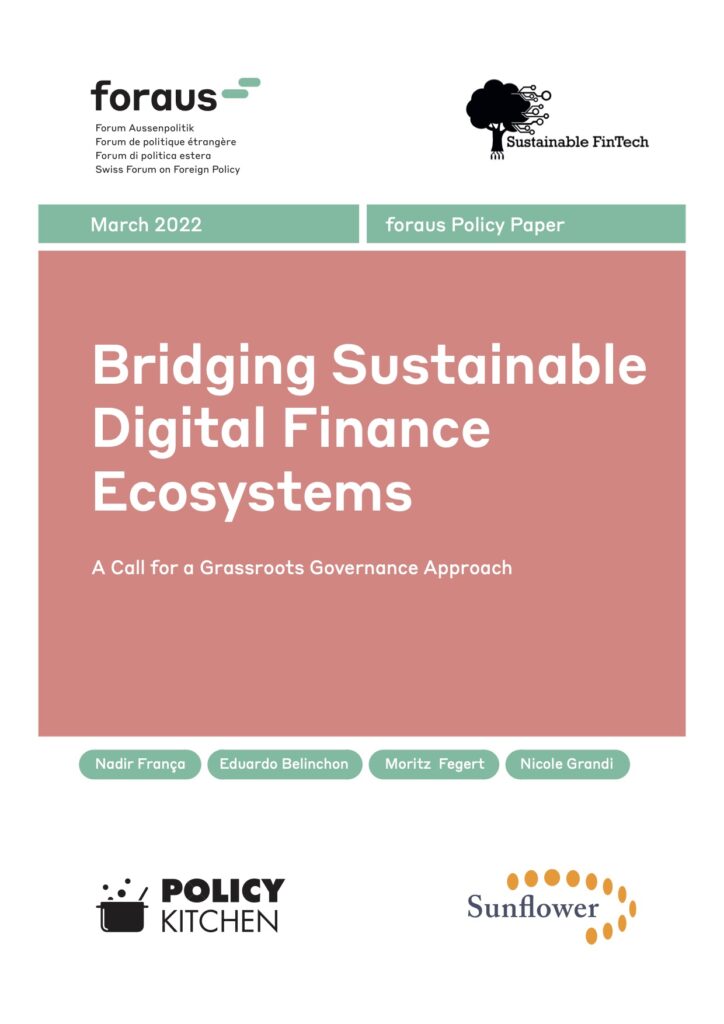
The growing attention paid to technological innovations in finance is creating substantial momentum to develop sustainable digital finance ecosystems, both at global and national levels. Acknowledging the key role that the finance industry has to play in financing the UN 2030 Agenda, grounded in the so-called ‘FinTech revolution’, several players and institutions are aiming to cooperate to steer the (digital) finance industry’s transition to more sustainability- oriented and inclusive business models. The ultimate goal is to ensure that the development of financial innovations is guided by global challenges, such as the achievement of the SDGs.
This foraus policy paper discusses the question: What would be the ideal governance model for the global sustainable digital finance ecosystem? Based on desk research, discussions with experts, and the results from the participatory process FinTechs & Sustainability: Envisioning Sustainable FinTech Bridges, the authors argue that a grassroots governance approach should be adopted following three recommendations for action, linked to three identified phases of implementation, to provide a level playing field where different players, no matter their size, can be heard, learn from each other’s experiences and support the expansion and adoption of innovations across the different ecosystems.
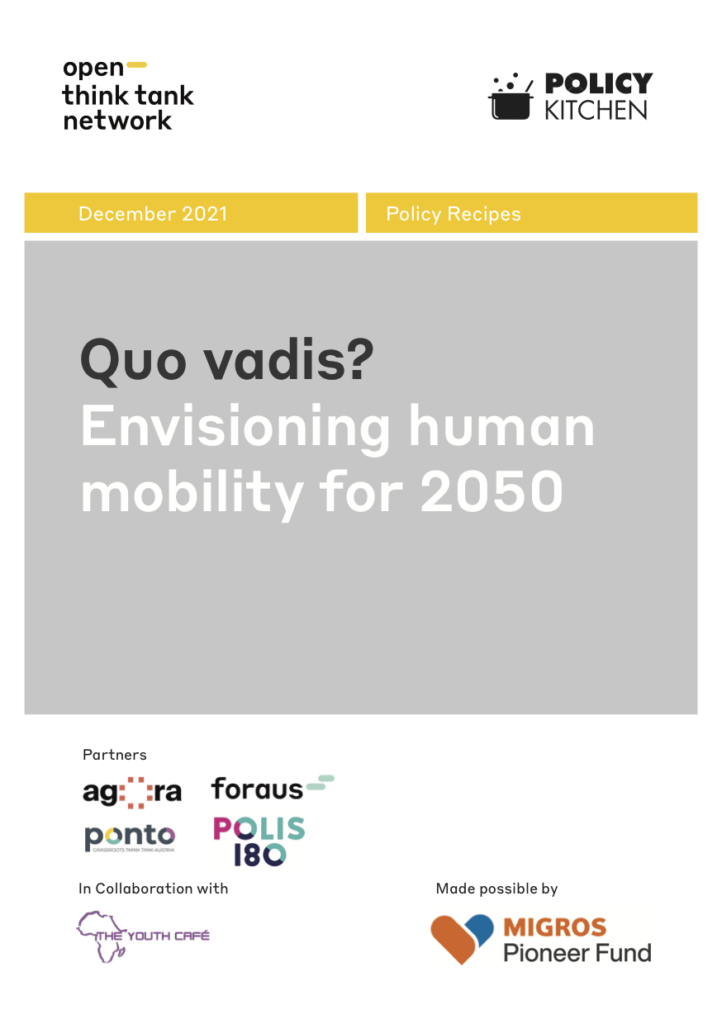
One year into the coronavirus pandemic that brought the world to a halt, the Open Think Tank Network’s grassroots think tanks partnered with the Kenyan-based youth empowerment organization, The Youth Café, to reflect on the impact of current transformative events on the various forms of migration. Recognizing that the future is unpredictable and with the aim of unraveling the range of possibilities it holds, a methodology to democratize strategic foresight was pioneered. The project engaged over one hundred participants from across the globe in a three-part workshop series and on the innovation platform Policy Kitchen. This report and an accompanying podcast series are the results of the participatory strategic foresight process. Diverse perspectives on the future of migration and crowd-sourced migration policy actions were ideated throughout the project. The project team regrouped the ideas into four key avenues for policymaking to set the political course for the participants’ visions of the future today, which are the following: Fair remuneration and inclusive working conditions; addressing the positive impact of migration on the social and economic challenges of an aging society; increase the decision-making power of cities and local level actors in migration management; and strengthening of urban-rural linkages in the context of climate change resilience and adaptation.
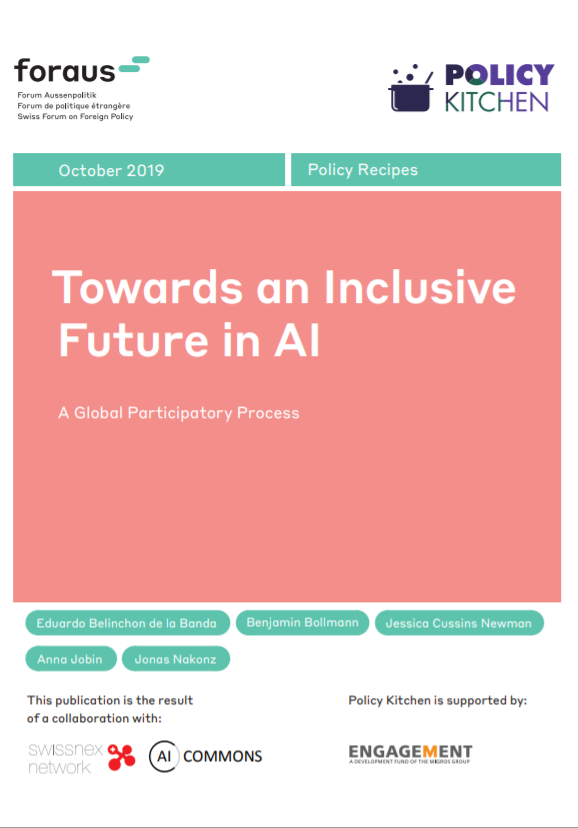
In response to the accelerating potential of artificial intelligence (AI) to transform our lives, various governments, multilateral bodies, and other organizations have produced highlevel principles and guidelines for the ethical use of AI in recent years. Despite the staggering number of such documents (over 90 by October 2019), there appears to be a relatively high degree of convergence on the level of principles. «Inclusiveness» is one of just a handful of principles that most actors seem to agree upon. However, a closer look reveals that the principle is interpreted very differently in terms of the domain, scope and actors it pertains to. To respond to this gap, the swissnex Network, foraus, and AI Commons launched the global campaign «Towards an Inclusive Future in AI» with foraus’ new Policy Kitchen methodology. This joint experiment resulted in 11 workshops in 8 countries, involving 10 partner organizations and about 120 participants from a wide range of perspectives, who collaboratively generated 43 ideas for an inclusive future in AI. This paper presents the in-depth exploration of ideas and proposals on inclusion collected during this participatory process.



